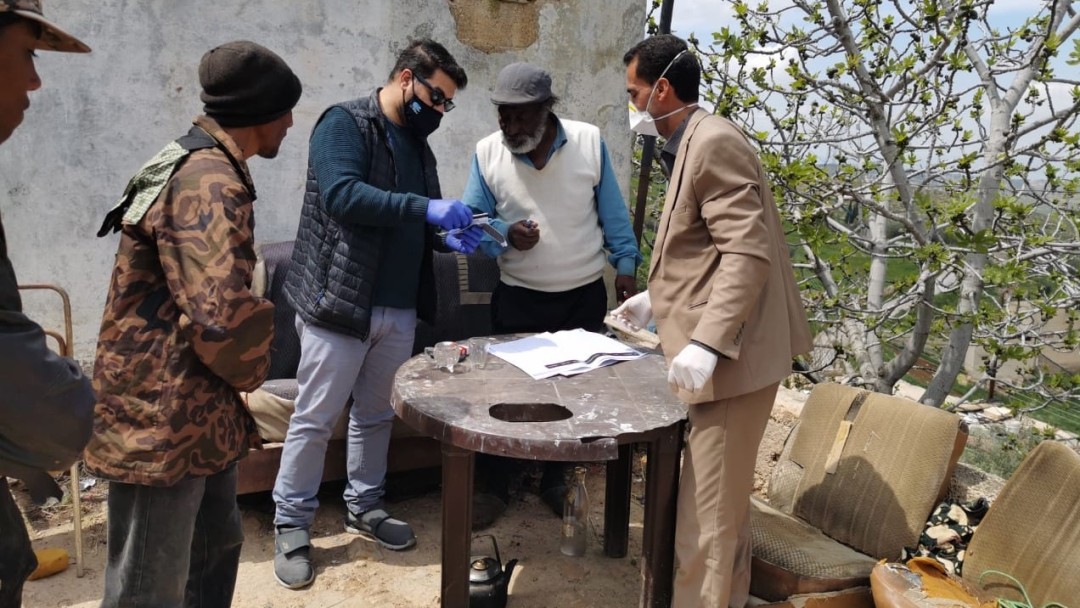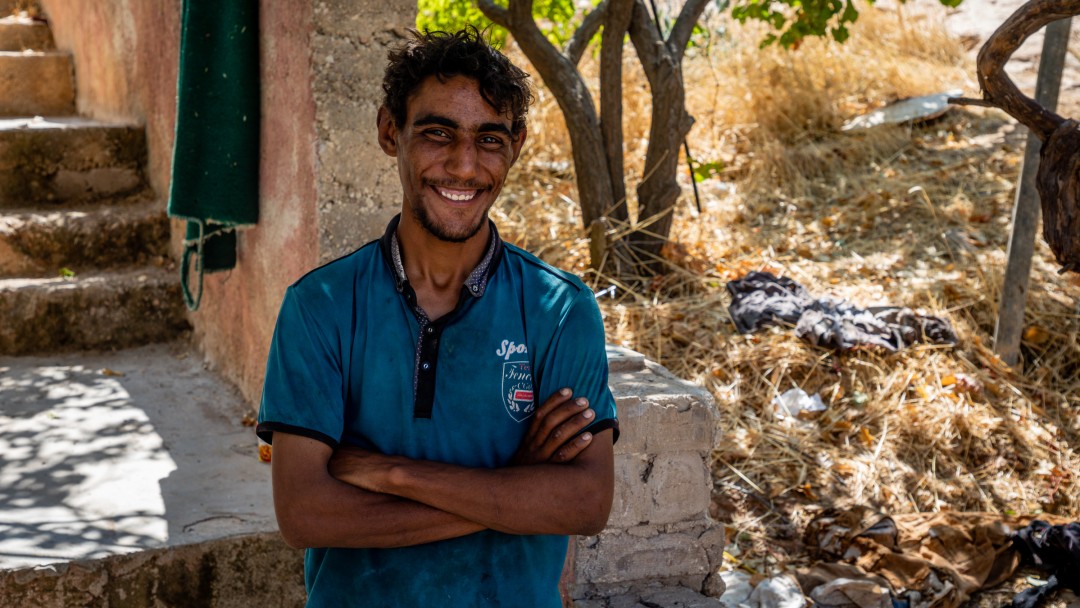
Mahmoud Al Abed has worked for years to support his parents, brother and sister, doing irregular jobs on farms in his rural area of Berien, in Zarqa Governorate, 20 km north-east of the Jordanian capital Amman.
The 24-year-old has a learning disability, often making it difficult for him to find work.
His family is the caretaker of a farm, which provides them with accommodation and basic life necessities. Yet, for the impoverished family, income generation is vital to help them meet their day-to-day needs.
Helping his son articulate his thoughts, Ahmad Al Abed explains their financial situation. “We don’t have any source of income,” says the elderly father. “But when Mahmoud or his brother work, they support the family financially so we can pay our bills.”
A few months ago, Mahmoud found work through his local municipality in Berien to clean roads, as part of a programme supported by Germany through the German Development Cooperation (KfW Development Bank), to help some of the country’s most vulnerable groups, including Jordanian nationals and Syrian refugees.
The programme, implemented by the International Labour Organization (ILO) through collaboration with local ministries and municipalities, supports the creation of immediate short-term jobs through Employment Intensive Investment Programmes (EIIP), or labour-intensive work, focusing on the maintenance and cleaning of roads and highways, and municipal public facilities.
Ahmad says that the two-month employment opportunity not only provided his son with much-needed income, but it helped improve his mental and physical wellbeing. “He used to wake up early and go to work. It was a positive experience for him (...) Before working, the situation was bad. There was nothing to do and we were all just sitting at home.” “I was treated well, I was treated with respect,” recalls Mahmoud.

An important component of the programme is the principle of decent work. This involves ensuring that those who benefit from its employment include 50% Syrians, as well as 20% women and 3% persons with disability. It also includes adequate safety equipment and PPE, the provision of social security coverage for all workers and a transparent and safe payment process.
Mahmoud’s employment could not have come at a better time. In March 2020, just before the end of his two-month employment, much of Jordan’s economic activity came to a standstill as government measures to contain the spread of the COVID-19 virus came into force.
Despite the country-wide lockdown that led to the suspension of his work, Mahmoud and thousands of other workers continued to receive their salaries to ensure their basic needs were met. The ILO distributed over five hundred ATM cards to workers across a number of municipalities in Irbid, Mafraq, Zarqa, Jerash, Ajloun and Amman, including remote villages where some workers were self-isolating. In June, the first of the programme’s workers began to return to work, under strict COVID-19 safeguarding guidelines, to ensure a high level of protection for workers when on site.
Even though Mahmoud’s temporary employment through the programme has now come to an end, Mahmoud and his father hope similar opportunities will be available again in the near future. “Work for us is a blessing – whatever it is,” says Ahmad. “When I remember myself at work when I was my son’s age, I feel energised again.”
Share page
To share the content of this page with your network, click on one of the icons below.
Note on data protection: When you share content, your personal data is transferred to the selected network.
Data protection
Alternatively, you can also copy the short link: https://www.kfw-entwicklungsbank.de/s/enzBXxtg
Copy link Link copied